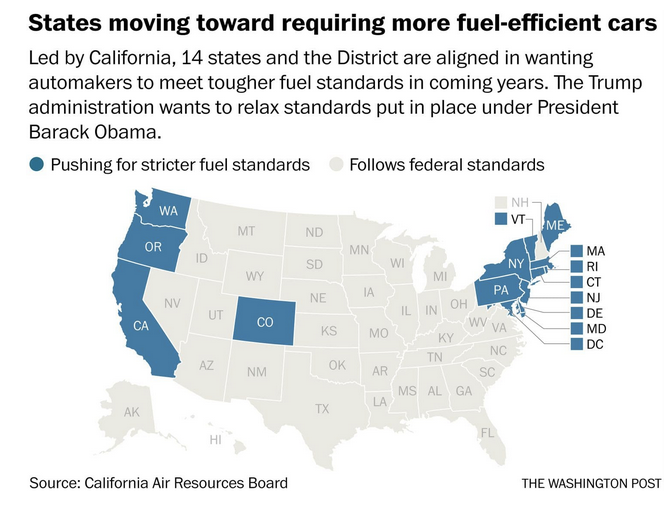More than a dozen states are moving to strengthen environmental protections to combat a range of issues from climate change to water pollution, opening a widening rift between stringent state policies and the Trump administration’s deregulatory agenda.
In recent months, Hawaii, New York and California have moved to ban a widely used agricultural pesticide linked to neurological problems in children, even as the administration has resisted such restrictions. Michigan and New Jersey are pushing to restrict a ubiquitous class of chemical compounds that have turned up in drinking water, saying they can no longer wait for the Environmental Protection Agency to take action.
Colorado and New Mexico have adopted new policies targeting greenhouse gas emissions from fossil fuel drilling and limiting where these operations can take place. And more than a dozen states have adopted policies that would force automakers to produce more fuel-efficient cars than required by federal standards.
The growing patchwork of regulations is creating uncertainty for American businesses as state lawmakers vie to change rules that, in past administrations, were more likely to be set at the federal level.
“At the end of the day, I think regulated entities want to know what the expectations are,” said Wendy Heiger-Bernays, an environmental health professor at Boston University. “They’d prefer not to have two different standards — one in one state and another in another state.”
Local officials say the jumble of policies also threatens to create disparities, not only in obligations placed on businesses but also in the level of protections guarding human health in different communities.




